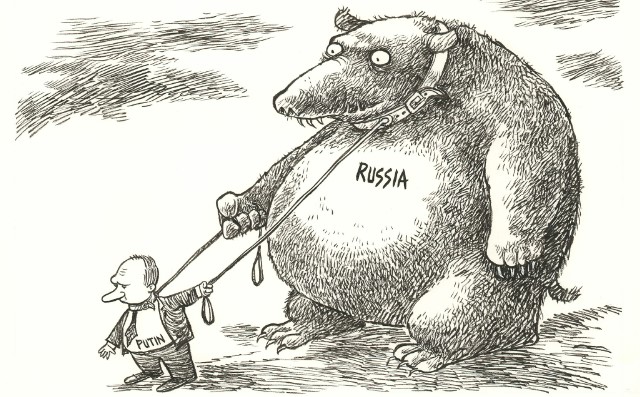Virendra Pandit
New Delhi: From 1997 to 2014, Russia was part of the Group of Eight (G-8). When it annexed the Crimean Peninsula from Ukraine, it was ejected from G-8, which became G-7, whose leaders’ Summit in Germany concluded on Tuesday.
With President Vladimir Putin trying to resurrect the Tsarist empire a century after its demise, Russia has been increasingly isolated internationally. Of course, its energy export is keeping its sanctioned economy aloft despite the waves of sanctions imposed by the West and its allies, like Japan and Australia, but Moscow may head into an economic crisis by the end of 2022.
For one, major European economies like Britain, Germany, and France are phasing out their dependence on the import of Russian energy (coal, oil, and gas) by December. Second, Russia has already marginally defaulted on some international borrowings. The full impact of the sanctions will manifest by December this year.
Amid this increasing international isolation, Russia has become friendless. It can scarcely trust China, while India is equidistant from both Russia and the West.
In this uncertain scenario, President Putin, aiming to scout for friends, is embarking on his first foreign trip since Russia invaded Ukraine on February 24. On Tuesday, he headed for two former Soviet republics, Tajikistan and Turkmenistan.
Ahead of the trip, however, there were no expectations of significant developments. But the visit gives President Putin the opportunity to claim he is not isolated despite widespread sanctions and denunciations from the West because of the Ukraine conflict, the media reported.
On his first stop in Tajikistan, he will meet his counterpart-dictator President Emomali Rahmon, who has been in office since 1994 and kept his country close to Russia. Tajikistan, Russia’s largest base abroad, hosts nearly 7,000 Russian troops.
Putin’s foreign policy adviser Yuri Ushakov said on Monday a key part of the talks with Rahmon will discuss measures to improve security along Tajikistan’s porous, 1,357-kilometer (843-mile) border with Afghanistan which the Taliban terrorists recaptured last year.
Tajikistan is wary of an unstable Afghanistan across its borders. In the 1990s, a civil war claimed 100,000 lives. Although a Muslim-majority nation, Tajikistan does not want Islamic radicalism spilling over from Afghanistan. It also is the main route for heroin and opium smuggling from Afghanistan.
Although Russia has officially designated the Taliban as a terrorist group, it has allowed their representation in Moscow and even invited a militant leader to the St. Petersburg International Economic Forum recently.
On Wednesday, the Russian President will visit Ashgabat, the capital of Turkmenistan, which largely seals itself off from the world. He will attend a summit of Caspian Sea littoral states, which also include Azerbaijan, Iran, and Kazakhstan.
Interestingly, Kazakh President Kassym-Jomart Tokayev, who appeared with Putin at this forum, firmly stated that Kazakhstan would not recognize the two separatist Ukrainian regions that Russia has declared sovereign states.
Besides, President Putin is planning to attend the G-20 Summit at Bali, Indonesia, on November 15 and 16, Ushakov said on Monday.
“We have received the official invitation… and we have responded positively, saying we are interested in participating,” he said.
During the Covid pandemic in October 2021, Putin had joined the G-20 summit in Rome via video link.
But all is not rosy with G-20 in Indonesia, which holds the group’s rotating presidency this year.
By inviting Russia, against which the West and its allies have imposed waves of sanctions since Moscow’s February 24 invasion of Ukraine, Indonesia has sparked a controversy.
The West, led by the United States, has been putting pressure on Jakarta to exclude Moscow following Russia’s offensive in Ukraine and accusations of war crimes.
But Germany’s Chancellor Olaf Scholz said on Monday he was still open to taking part, despite Putin’s expected attendance. He noted Indonesia has also invited Ukrainian President Volodymyr Zelensky.
European Commission chief Ursula von der Leyen likewise said on Sunday she did not rule out sitting at the same table with Putin at the G-20. She said it was “important to tell him to his face what we think of him”.
The G-20 nations make up about 80 percent of the total world economic output, while the G-7 contributes about 31 percent.

